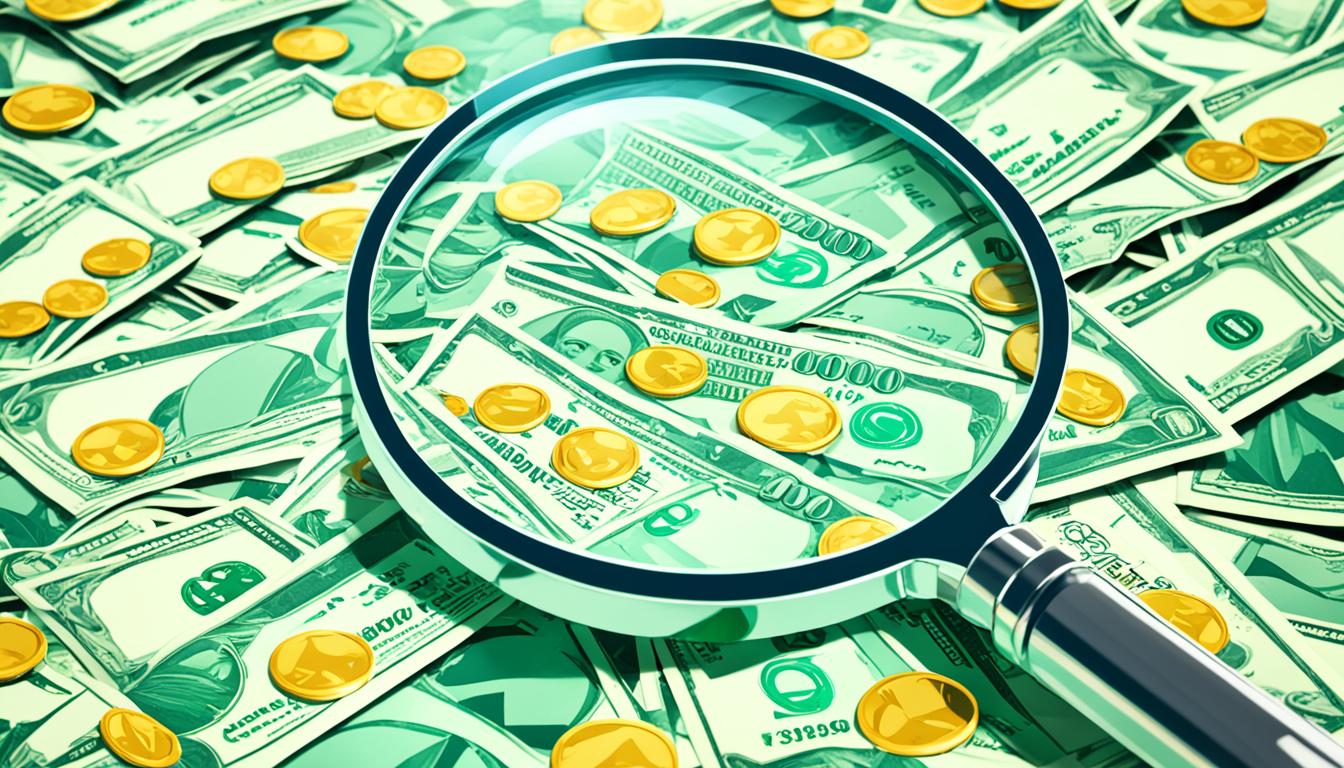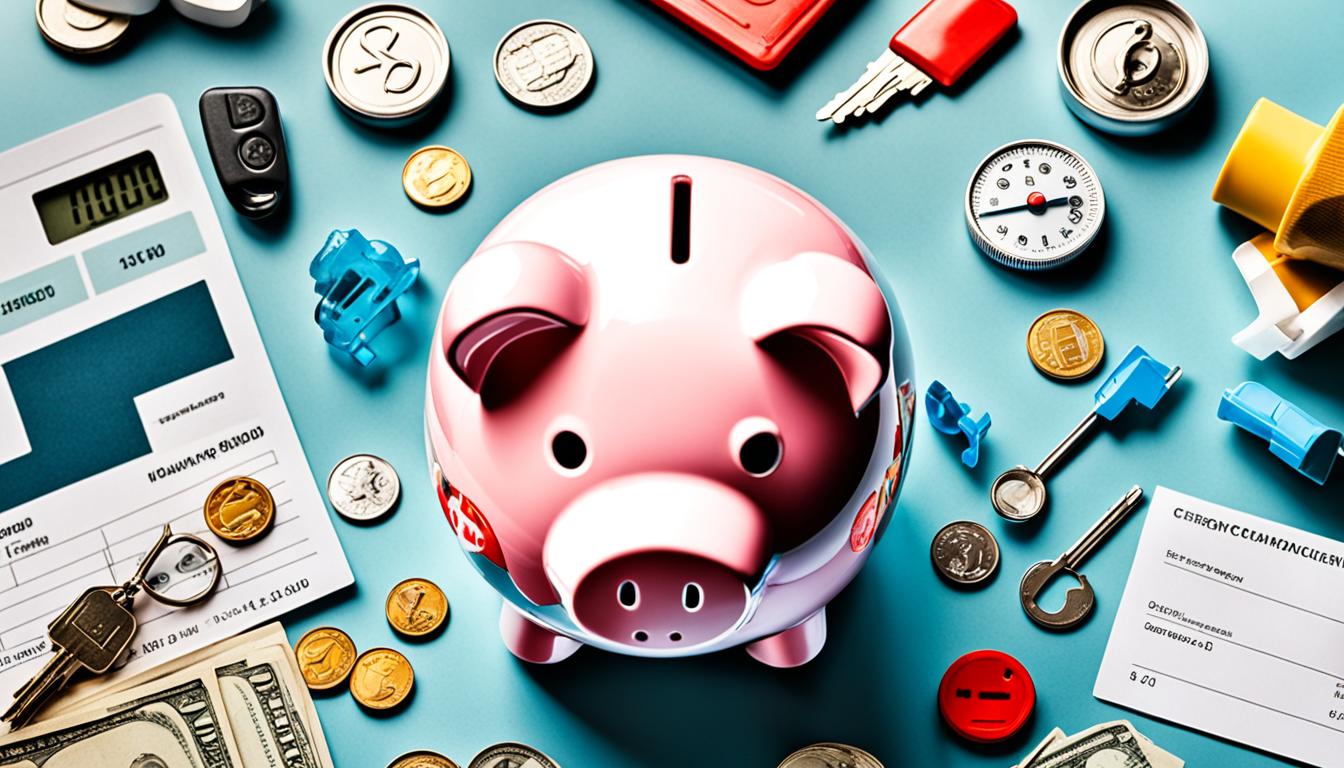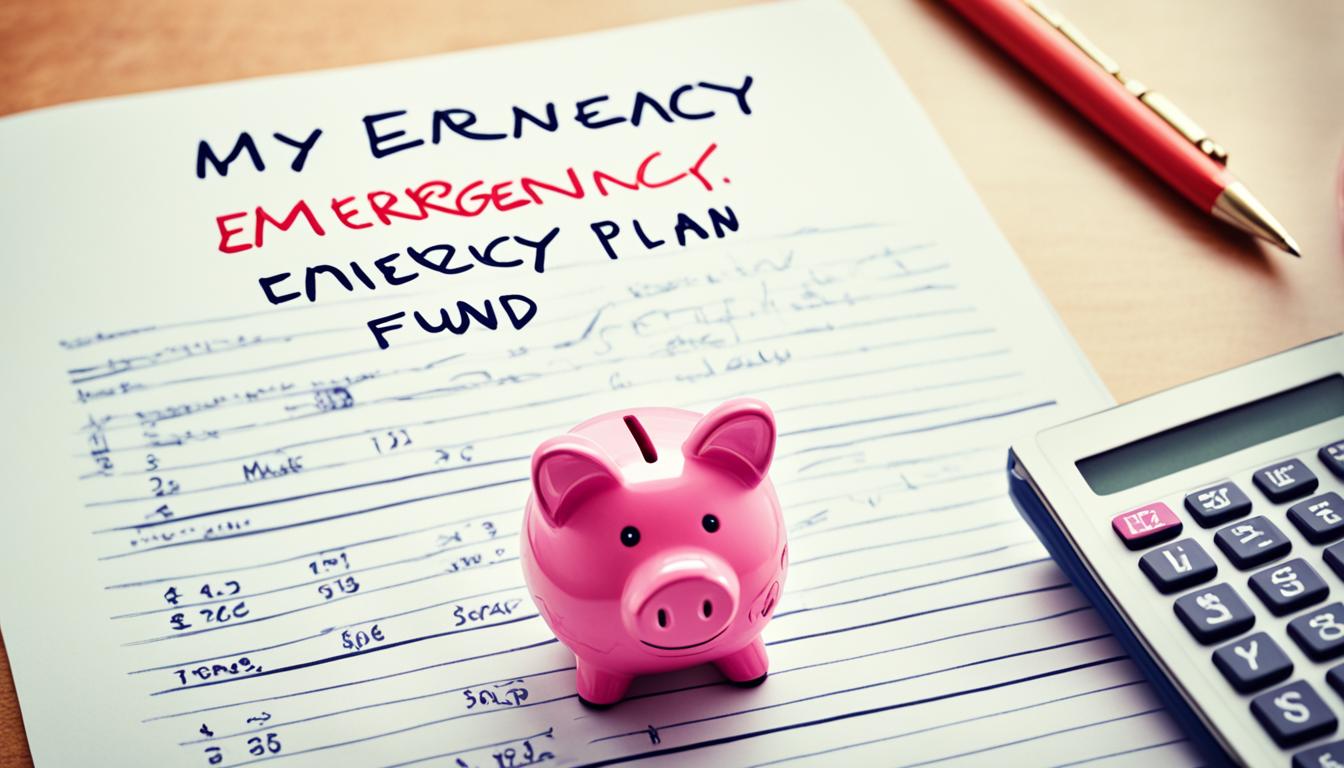It’s super important to have an emergency fund for sudden needs. These can be emergency scenarios like unexpected doctor bills or car fixes. Or even when you suddenly lose your job. Without this safety net, small money problems can become big debts. This makes it tougher to bounce back. You might end up using credit cards with high interest or loans.
Studies show people without enough savings struggle more during tough times. They have a harder time dealing with crises. Setting up your emergency plan can help. Think about past surprises and save accordingly. Also, setting money aside automatically from your income can really strengthen your safety against financial shocks.
Creating a strong emergency fund is key. It gives you a safety net and peace of mind. Check how you’re doing from time to time. Also, make rules on how to use the money. Make sure it’s only for real emergencies. This could be for sudden house fixes or health issues.
Keep your emergency money in a bank or credit union. This makes sure it’s safe and you can get to it easily. Having a clear goal for your fund makes you stay motivated. It means you’re ready for any money surprises that life throws at you.
What is an Emergency Fund and Why You Need One
An emergency fund is money saved for unexpected costs not in your monthly budget. It’s key in finance, like a safety net for surprise bills. This could be for sudden medical costs or urgent car fixes, keeping you safe from debt.
A strong emergency fund is vital for dealing with money problems. People who bounce back from financial lows often credit their savings. Without it, surprise bills can lead to bigger money troubles.
An emergency fund helps you stay out of debt. It means you have cash ready, so you don’t need loans or credit cards. Starting one helps you feel secure against sudden money needs.
Building Your Emergency Fund: Strategies and Tips

Having an emergency fund is very important for keeping your money safe. A good tip is to save money regularly. You could do this every week or month. It helps you make saving a normal part of life. Plus, your emergency fund will grow over time.
It’s also smart to make sure you spend less than you earn. This way, you can put more money into savings. When you get extra money, like from tax returns, add it to your emergency fund. This will make your fund grow faster and make you more secure.
Try making your savings automatic. This means moving money to your savings without thinking about it. Many banks help you do this easily. It stops you from missing a chance to save.
Setting goals can help you keep adding to your fund. Check how much you save often. This keeps you moving towards your goal. Your emergency money should be somewhere safe. A bank is a good place because you can get to it easily.
These tips can help you save well. Then you’ll be ready for surprises. And you’ll worry less about money problems.
Emergency Fund Scenarios: Real Life Examples
Emergency funds are super important in real life. For example, losing a job can really change how much money you make. It could be because the job goes away or there are fewer hours. When this happens, having some money saved up helps a lot. It can pay for important things and give you time to find a new job. Knowing when to use your emergency fund is key.
Getting sick or hurt can also make money tight. Doctor bills can add up and be a big reason people owe money. An emergency fund can help pay these bills. This means you don’t have to worry about debt as much.
Emergencies don’t just mean health or job problems. Sometimes, cars break or houses need sudden repairs. Things like a broken starter in your car or a hole in your roof are urgent. They need to be fixed fast for your safety and to keep your life moving. These examples show why it’s so important to have money saved for emergencies.
Choosing to use your emergency fund needs careful thought. It’s important to know what’s really an emergency and what’s not. Things like trips or fancy items shouldn’t come from your emergency fund. That money is for big, important, and sudden expenses only.
How Much Should You Save in Your Emergency Fund

To find out how much to save, look at past sudden costs. It’s wise to keep enough money to last three to six months. This helps during job loss or big cuts in income.
If money is tight or your earnings change a lot, saving any bit helps. Even a small amount can make you feel safer. It’s a step towards a solid financial cushion.
Planning for emergencies is key to setting your savings goal. Think about your costs and any special needs for quick money. This way, you’re ready for any money surprises.
When and How to Use Your Emergency Fund
An emergency fund is key for urgent, unexpected costs. A Bankrate report shows that only 44 percent of U.S. adults would use savings for an emergency expense. A good emergency fund helps with medical bills, car repairs, or home needs. It’s crucial to know what a true emergency is. This helps make sure the fund really helps when needed.
Knowing when to use the emergency fund is important. It can keep you out of debt during sudden medical issues or a job loss. Concerns about not having enough for living costs are real for 66 percent of people. It’s vital to have funds that are easy to get without extra costs. Despite monthly savings by 56 percent of Americans, 36 percent have more debt than emergency savings.
It’s important to refill your emergency fund after using it. This keeps your finances secure. Now, 30 percent of adults have saved more than last year, but 32 percent have saved less. Future rate cuts may reduce savings growth. So, adding to your fund regularly helps you stay ready for anything. For tips on using emergency funds, visit Bankrate’s guide.






